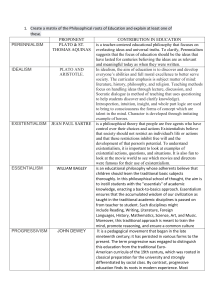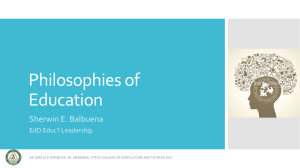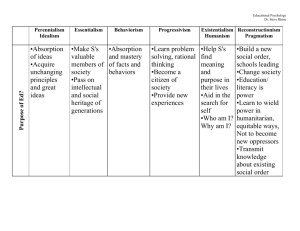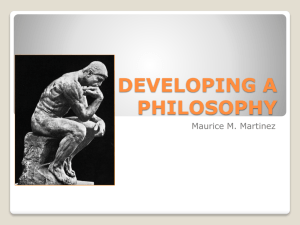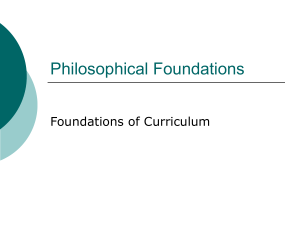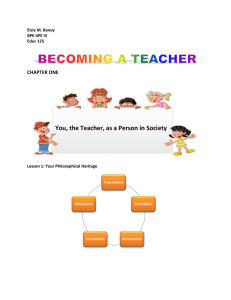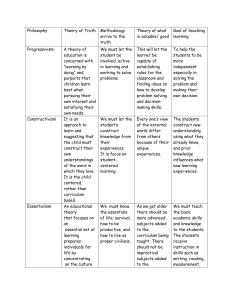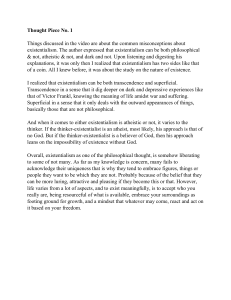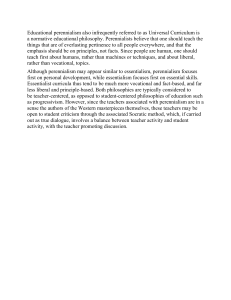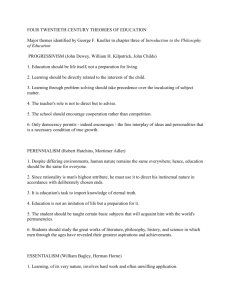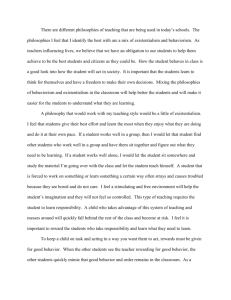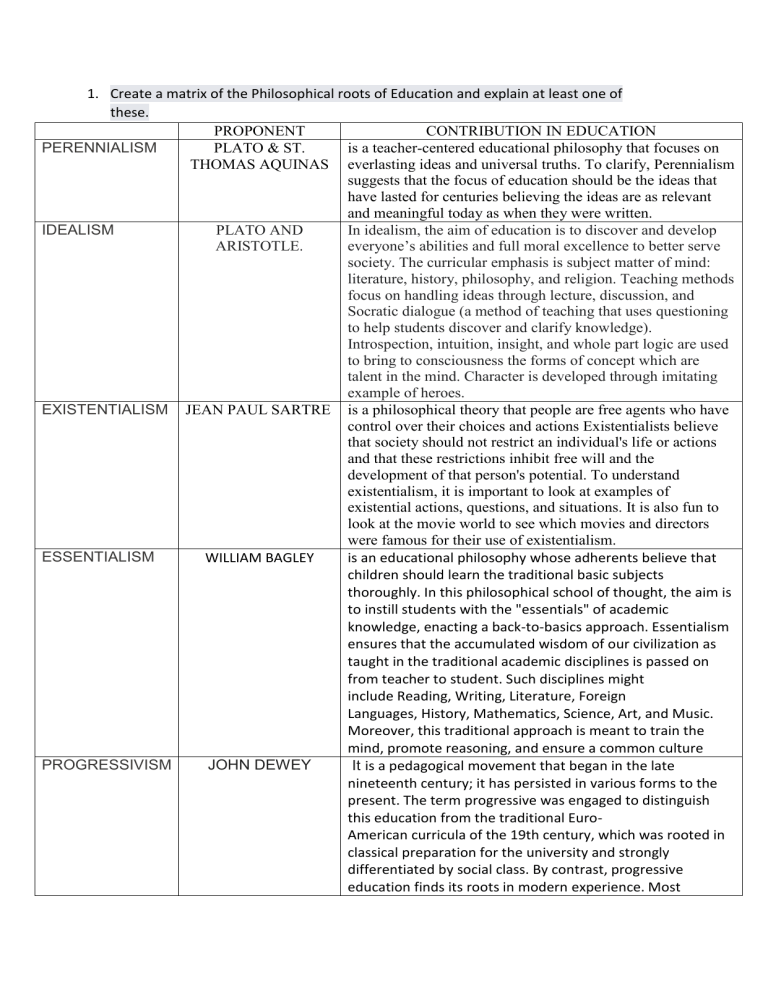
1. Create a matrix of the Philosophical roots of Education and explain at least one of these. PROPONENT CONTRIBUTION IN EDUCATION PLATO & ST. is a teacher-centered educational philosophy that focuses on PERENNIALISM THOMAS AQUINAS everlasting ideas and universal truths. To clarify, Perennialism suggests that the focus of education should be the ideas that have lasted for centuries believing the ideas are as relevant and meaningful today as when they were written. PLATO AND In idealism, the aim of education is to discover and develop IDEALISM ARISTOTLE. everyone’s abilities and full moral excellence to better serve society. The curricular emphasis is subject matter of mind: literature, history, philosophy, and religion. Teaching methods focus on handling ideas through lecture, discussion, and Socratic dialogue (a method of teaching that uses questioning to help students discover and clarify knowledge). Introspection, intuition, insight, and whole part logic are used to bring to consciousness the forms of concept which are talent in the mind. Character is developed through imitating example of heroes. EXISTENTIALISM JEAN PAUL SARTRE is a philosophical theory that people are free agents who have control over their choices and actions Existentialists believe that society should not restrict an individual's life or actions and that these restrictions inhibit free will and the development of that person's potential. To understand existentialism, it is important to look at examples of existential actions, questions, and situations. It is also fun to look at the movie world to see which movies and directors were famous for their use of existentialism. ESSENTIALISM WILLIAM BAGLEY is an educational philosophy whose adherents believe that children should learn the traditional basic subjects thoroughly. In this philosophical school of thought, the aim is to instill students with the "essentials" of academic knowledge, enacting a back-to-basics approach. Essentialism ensures that the accumulated wisdom of our civilization as taught in the traditional academic disciplines is passed on from teacher to student. Such disciplines might include Reading, Writing, Literature, Foreign Languages, History, Mathematics, Science, Art, and Music. Moreover, this traditional approach is meant to train the mind, promote reasoning, and ensure a common culture PROGRESSIVISM JOHN DEWEY It is a pedagogical movement that began in the late nineteenth century; it has persisted in various forms to the present. The term progressive was engaged to distinguish this education from the traditional EuroAmerican curricula of the 19th century, which was rooted in classical preparation for the university and strongly differentiated by social class. By contrast, progressive education finds its roots in modern experience. Most BEHAVIORISM IVAN PAVLOV progressive education programs have these qualities in common. Behaviorism can also be thought of as a form of classroom management. Behaviorists believe that if teachers provide positive reinforcement, or rewards, whenever students perform a desired behavior, they will learn to perform the behavior on their own. The same concept applies to punishments. 2. In your perspective, what do you is the greatest contribution to the Philippine education of each historical development/period of colonization? Expound on these. - Such a policy was the introduction of the American education system, and so pervasive and far-reaching was its impact and influence on the life and culture of Filipinos during and after the colonial era that it is widely regarded as the "greatest contribution" of American colonialism in the Philippines. The colonization of the country has led to the development of the country and one of these developments includes the progress of science and technology in the country. 1. Formal education and founded scientific educations - Spaniards have introduced education into the country. Farming methods were also taught. In this era, universities and colleges were established. With this, we had a glimpse of education. 2. Study of medicine and Engineering - the Spanish colonization has marked the start of the study for the following fields. 3. Galleon Trade - The galleon trade has been key for Filipinos to study abroad making them more knowledgeable most especially about scientific knowledge. 4. Technology - Americans have introduced technology such as television, machines, telephones, x-rays etc.
